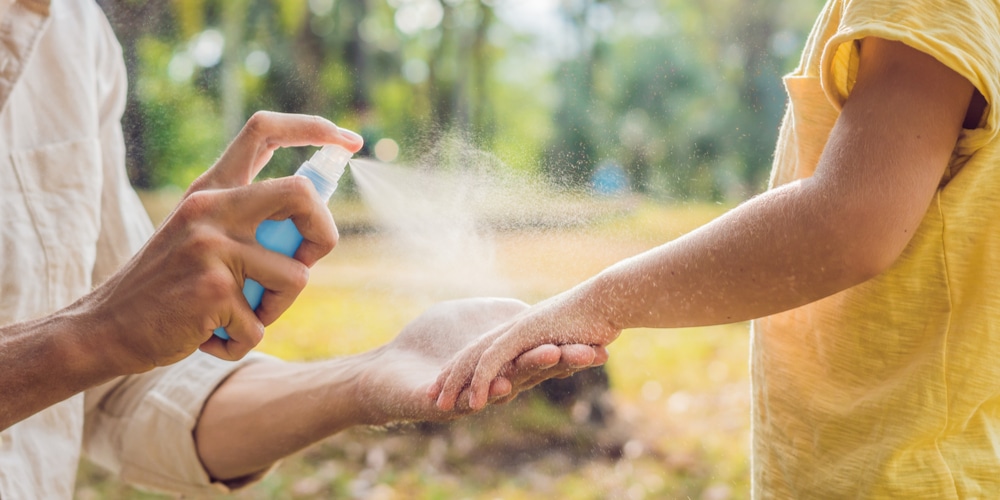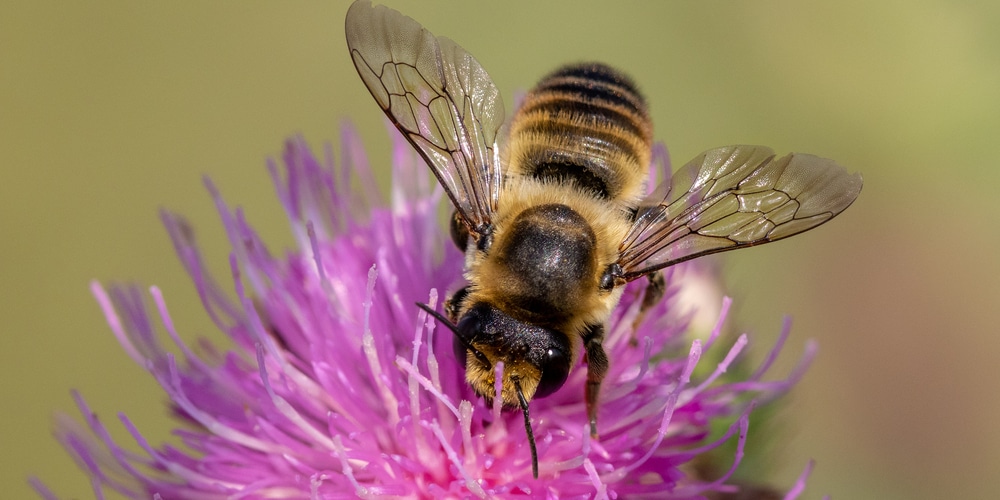The outdoors are fun, with the warmth of the sunshine against your skin and the smell of fresh, green life everywhere. But there’s one downside to all that natural beauty: insects.
Although life outside the four corners of our home can give us that refreshing breath of air we all need, it comes with a price. Pests, bugs, and other pesky creatures everywhere can make enjoying a summer day nearly impossible. But there’s one saving grace when it comes to warding off these bothersome beings, and that’s DEET.
DEET is a common chemical found in insect repellents that has been used for decades to keep mosquitoes, ticks, and other insects at bay. But does it work on bees and wasps? Let’s find out!
What is DEET, and How Does it Work?
DEET is a man-made chemical compound that first debuted as an insect repellant in 1946 for the US army. It was commercialized and made available for civilian use 11 years later, in 1957. Since then, this clear or yellowish liquid has become one of the most popular ingredients in bug sprays.
The United States Environmental Protection Agency has stated that DEET is “safe and effective” when used as directed. When applied to the skin, it works by masking the scents that would typically attract insects, like carbon dioxide and sweat. In other words, it acts as a barrier between you and them!
So rather than spraying your environment with insecticides and other harmful chemicals, DEET simply confuses the insects. The presence of DEET makes it nearly impossible for them to smell you.
Does DEET Repel Bees and Wasps?
You’ve seen your insect repellent and probably noticed that it contains DEET. In fact, it’s one of the most popular ingredients in bug sprays. One of the primary reasons why it’s used so often is because it’s incredibly effective against insects, including bees and wasps!
Similar to other flying insects, bees and wasps are attracted to the scents that we produce, like sweat and carbon dioxide. They use their flying receptors, called olfactory receptors, to zero in on their target. But when DEET is present, it confuses these receptors. It prevents them from being able to smell and detect the human body.
This makes it incredibly difficult for bees and wasps to find people who’ve applied this repellent. As a result, if they can’t find us, they are less likely to sting us.
When applied to the body, DEET works as a perfectly good bee and wasp repellent. When mixed with other bee repellents, it can provide longer-lasting protection against these stinging insects.
How Long Does DEET Last?
The length of time that DEET lasts depends on a few different factors, like how much you sweat and whether or not you’re exposed to water. But in general, it can last anywhere from two to five hours before it needs to be reapplied.
When spending time in the water, it’s important to remember that DEET will wash off. This means that you’ll need to reapply it more often if you’re swimming or spending time in the ocean, lake, or pool.
Is DEET Safe?
Although DEET is a man-made chemical, it’s been extensively tested and is considered to be safe for humans when used as directed. The Centers for Disease Control and Prevention (CDC) recommends using insect repellents that contain DEET, picaridin, oil of lemon eucalyptus, or IR3535 when spending time outdoors.
As a safety precaution, it’s always a good idea to follow the directions on the label when using any type of insect repellent. This will help you to avoid any potential skin irritation or other side effects.
If this is your first time applying DEET, you may want to do a patch test, just like you would with any new skincare product. To do this, apply a small amount of the repellent to a patch of skin that’s not sensitive, like your forearm. Just a small amount will do. Then wait 24 hours to see if you have any adverse reactions. If not, then you’re good to go!
Additionally, people with sensitive skin may want to avoid using products that contain DEET. If you have any concerns, it’s always best to speak with a doctor or another medical professional before using any type of insect repellent.
Avoid using DEET on open wounds, cuts, or scrapes. And if you get it in your eyes, be sure to flush them out with water for 15 minutes.
Does Deet Repel Bees: Final Thoughts
The beautiful truth about DEET is that it’s an incredibly effective way to repel bees and wasps. And it does this without harming them in the process. It’s a safe, man-made chemical that’s been tested and approved by multiple agencies. And when used as directed, it can provide long-lasting protection against these stinging insects.
Related Article: Smells Wasps Hate

